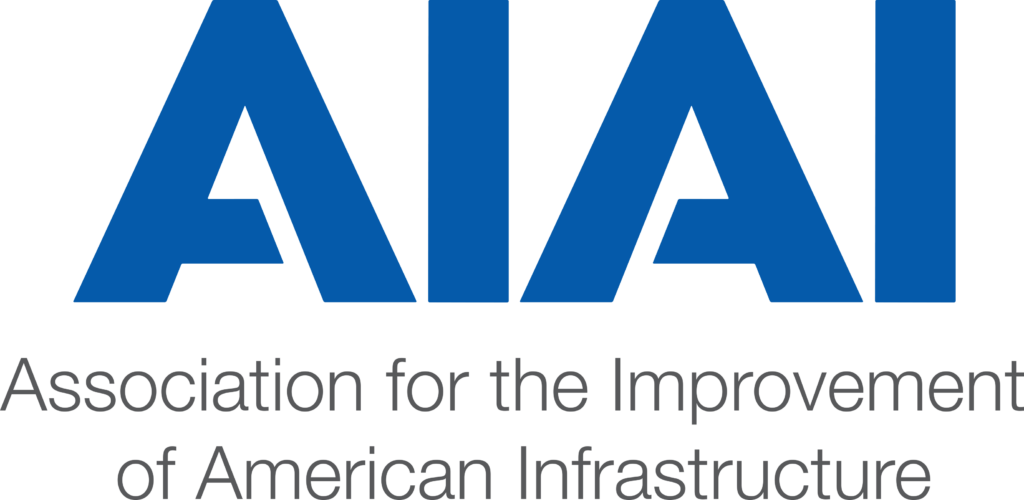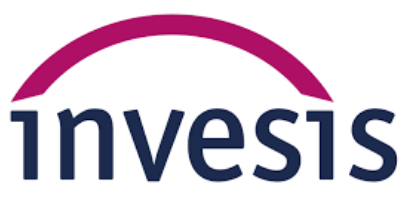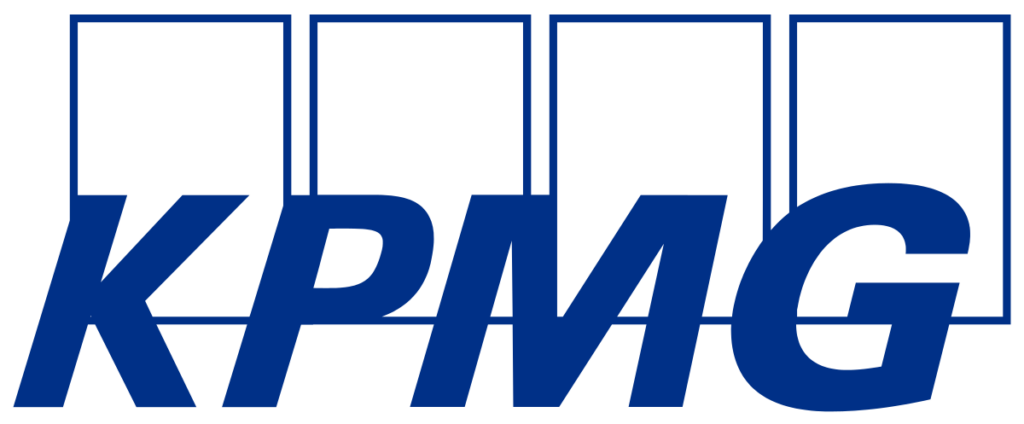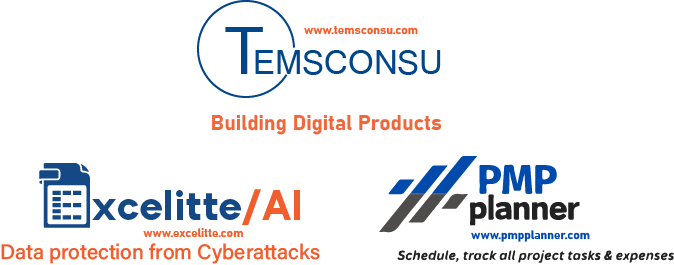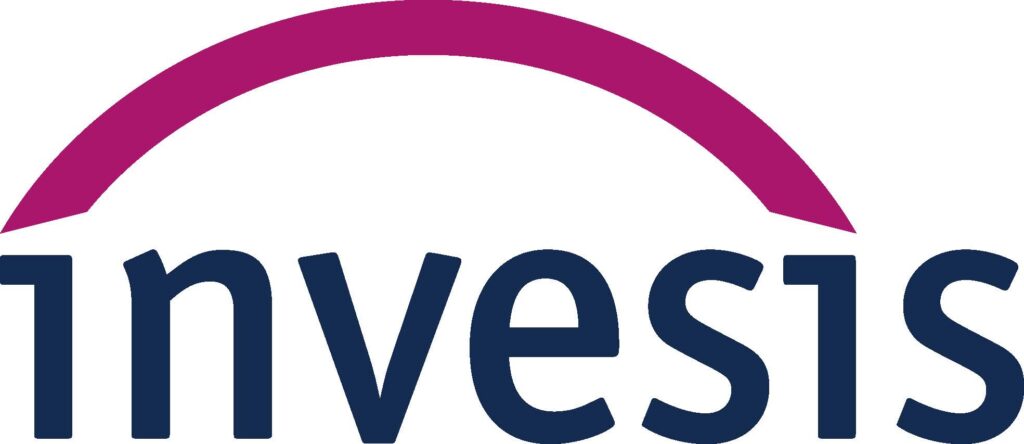2024 Agenda
Sunday, Mar 10
-
5:00 pm — 7:00 pm
Check-In & Registration
Grand Hall -
6:30 pm — 9:00 pm
AIAI Networking Reception (Open to AIAI Members and Public Sector Attendees)
Chaparral BallroomPlease join fellow AIAI members and public sector guests for light fare, cocktails and dessert.
Please click here to register.
Monday, March 11
-
7:00 am — 5:00 pm
Check-In & Registration
Grand Hall -
7:30 am — 9:00 am
P3 101 Questions and Answers Breakfast Workshop (Open to Public Sector Only | Advanced Registration Required)
Dallas A3/A2Join industry leaders and AIAI members for breakfast and an interactive conversation specifically tailored to the needs of agencies evaluating P3s. This pre-conference session is designed for those beginning to explore P3s, helping them understand where P3s are applicable, and how they can save money and time when dealing with upgrades, repairs, and maintenance. Learn when P3s do or do not make sense, and what major considerations need to be made when choosing this route, including the critical first steps.
Click here to register.
Presenters:Christopher Shaeffer, Senior Program Director, RS&HJonathan Astudillo, Vice President of Project Development, ACS InfrastructureLindsay Stowell, Executive Vice President, JLLSue Lee, CEO, Lesura Strategies, LLCThomas John, Partner, Ice MillerWilliam Gorham, Vice President, Business Development & Partnering, Plenary Americas -
9:00 am — 10:30 am
AIAI P3Direct Bootcamp: Finance (Open to Public Sector Only | Advanced Registration Required)
Dallas D2/D1The first in a series of public sector exclusive bootcamps, this session will focus on the financial aspects of a P3 and examine the use of PABS, TIFIA, taxable debt, and other financing tools.
Click here to register.
-
10:30 am — 12:00 pm
AIAI P3Direct Bootcamp: Risk Allocation (Open to Public Sector Only | Advanced Registration Required)
Dallas D2/D1In the second of AIAI's public sector exclusive bootcamps, we will address the types of risk, how risk transfer can deliver value, and the best practices for allocation and mitigation to ensure project success.
Click here to register.
-
1:00 pm — 2:30 pm
AIAI P3Direct Workshop: Developing Your Roadmap to Successful Delivery with P3 (Open to Public Sector Only | Advanced Registration Required)
Dallas D2/D1What does it take to deliver a project successfully using the P3 model? Join AIAI’s public sector workshop to find out. Our P3 practitioners will guide you through the process from project conception to delivery, and provide much-needed insight and best practice approaches to the realities of project implementation, shaping the success of your P3 program.
Click here to register.
-
2:30 pm — 3:15 pm
Conference Welcome and Opening Keynote
Dallas BC -
3:15 pm — 4:15 pm
Opening Plenary
Dallas BCModerator:Jonathan Gifford, Professor, Schar School of Policy and Government at George Mason University, and Director of the Center for Transportation Public-Private Partnership PolicyPanelists:Anthony Buckley, Director of Innovative Partnerships, Washington State Department of TransportationJoel Paulson, Executive Director, Metro Flood Diversion AuthorityJon Conant, Director of the Center for Alternative Financing and Procurement (CAP), Texas Facilities CommissionNatriece Bryant, Director of State Property, Colorado Department of Personnel & Administration -
4:15 pm — 5:00 pm
P3 Certification Program Awards Ceremony
Dallas BCJoin us we celebrate the inaugural class of the P3 Certification Program.
-
5:00 pm — 6:30 pm
Opening Night Welcome Reception
Expo HallJoin us at this special networking event for all conference delegates.
Tuesday, March 12
-
7:00 am — 5:45 pm
Check-In & Registration
Grand Hall -
7:30 am — 9:00 am
AIAI P3Direct Bootcamp: Operations & Maintenance (Open to Public Sector Only | Advanced Registration Required)
Dallas D2/D1Experts will examine the benefits of long-term operations and maintenance using the P3 structure to mitigate project risks. This boot camp will cover how P3 counterparties allocate and price risk and how approaching the topic of O&M early on drives value and appropriately addresses the asset’s long-term goals. This conversation is designed for audience engagement and dialogue is encouraged, so bring your questions!
Click here to register.
-
8:00 am — 9:00 am
Networking Breakfast
Expo Hall -
9:00 am — 9:30 am
Fireside Chat
Dallas BC -
9:30 am — 10:15 am
Dallas County: A Decade of Portfolio Transformation Utilizing P3s
Dallas BCCBRE’s Public Institutions & Education Solutions (PIES) group will present on best practices for PPPs and the impact of their deployment for clients across the DFW Metroplex and nationally. Guests will hear key perspectives (advisor, MWBE partner, client, political, developer, financier) related to Dallas County projects that include public & private uses, affordable housing, and specialized facilities; applicability to upcoming projects of interest to the P3 community; as well as other impactful lessons learned across national client activity. Key themes will include:
- Government: Best Practices in Advisor selection, contract structure, and relationship
- Partnerships: Inclusion, SBE, and growing the industry
- Transactions: Creative financing & impact on transaction structures
The presentation will also touch on key national themes and forecasts as well as observations about the evolution of the P3 space for both the public and private sectors.
-
10:15 am — 11:00 am
P3 Market Update
Dallas BCThis panel of experts will share what’s happening in the P3 industry across various sectors, including transportation, higher education, social infrastructure, energy, water and more.
-
11:00 am — 11:30 am
Networking Break
Expo Hall -
11:30 am — 12:30 pm
P3 Legislation: The Good, The Bad & Everything In-Between
Dallas D3Each state has their own P3 legislation that project owners must navigate when undergoing a new procurement. This panel will discuss how to best implement P3 legislation, and how to then navigate that implementation. How do you make your laws/regulations flexible enough? How do you then identify projects that are viable under current legislation? Join this interactive panel as they discuss P3 legislation coast to coast.
Moderator:Natriece Bryant, Director of State Property, Colorado Department of Personnel & AdministrationPanelists:Anthony Buckley, Director of Innovative Partnerships, Washington State Department of TransportationJennifer Bales Drake, Shareholder, Becker & PoliakoffSeth Miller Gabriel, Infrastructure & P3s Practice Leader, BDO USAThomas John, Partner, Ice Miller -
11:30 am — 12:30 pm
University of Kansas Gateway Project: A Story of Transformation via a Stadium and Mixed-Use P3
Dallas A3Come learn about the process currently being undertaken for a major mixed-use and stadium P3 projects at the University of Kansas. From the initial planning, to feasibility and financing studies, to the developer and operator selection processes, hear the lessons learned and recommendations from representatives from KU leadership, procurement, athletics, as well as the advisory team. Many universities and their host communities are looking to such partnerships to generate placemaking success, yet hurdles require creativity, great partners and best practices learned from other deals in order to be successful.
-
11:30 am — 12:30 pm
Procurement Risks that Impact P3 Success
Dallas A2The US market is still relatively new to utilizing the P3 process in comparison to other markets globally. Many states lack P3 legislation and those that do often struggle with the execution of the deal and operations. Public Agencies frequently treat the procurement of P3s as traditional procurements, overlooking the unique challenges in this first critical phase of the project. In doing so, they introduce risks that impact the project success such as bidder engagement and team withdrawals, private equity financing, and delays during negotiation to financial close.
This session will discuss 5 key areas of risk, provide some real and recent US examples as well as solutions and best practices. The five key areas addressed are:
- Surety, Insurance and getting the right contractor and O&M team to the table
- Private Equity Financing
- CapEx vs OpEx: The whole of life equation and the interface between D&C and O&M
- Project Agreement/Contract: The timing and necessary basics in the negotiation to Financial Close
- Project team failures in regard to Procurement and team withdrawals: Lessons that need to be learned
Each area will be discussed and expanded upon by our panel of experts, representing all stakeholders in the process including developers, advisories and agencies.
Moderator:Craig Covil, Infrastructure Executive & P3 and Alternative Project Delivery Advisor, C2 ConsultingPanelists:Andres Giraldo, Assistant Vice President, Advisory Services, WSP USAFermin Fontanes, Executive Director, Puerto Rico P3 AuthorityMarc Mastronardi, Deputy Chief Engineer, Georgia Department of TransportationMatthew Bezanson, Project Development Director, InvesisMatthew Neuringer, Partner, Orrick, Herrington & Sutcliffe LLP -
12:30 pm — 1:30 pm
Networking Lunch
Expo Hall -
12:30 pm — 1:30 pm
MORE Visibility for Women in Infrastructure Lunch Workshop
Dallas A1AIAI is excited to host our Fourth Annual MORE Luncheon. This year's event will be in workshop format, with each table addressing the unique challenges women continue to face in the industry. It's hoped that these conversations might lead to more meaningful outcomes such as the development of position papers.
Click here to register.
Presenters:Alexis Rosenberg, Senior Associate, AshurstAmanda Nicholls, Association for the Improvement of American Infrastructure (AIAI)Brandey Rodgers, Senior Director and Senior VP, Hayat BrownLeslie Fangman, Owner, Fangman AssociatesNadera Persaud, Senior Sales and Marketing Manager, GilbaneYoung Lee, Partner, Orrick, Herrington & Sutcliffe LLP -
1:30 pm — 2:15 pm
Afternoon Plenary: Mayors' Panel
Dallas BC -
2:15 pm — 3:15 pm
Why Do A P3? Building the Business Case and Selling It to Your Community
Dallas D3What business considerations should a government review before starting the P3 process? We'll discuss the elements that must be considered as the public builds out the business case for a P3 and share ways to effectively communicate it to the community at large.
Moderator:Rick Sapir, Partner, Hawkins Delafield & Wood LLPPanelists:Brian Renehan, Senior Vice President, Project Development, Energy and Social Infrastructure Practice Leader, WSPJerimi Henry, Vice President of Public, Private Partnerships, Hunt Companies, IncMatthew Brown, Chief Operating Officer, WT PartnershipSamuel Franco, Founder, InfraVest -
2:15 pm — 3:15 pm
PRHTA Toll Roads Monetization Project: Innovative Approaches for Infrastructure
Dallas A3This conference panel session discusses PRHTA's highway monetization project. The innovative project tackles challenges in maintaining Puerto Rico's toll road network, addressing budget deficits, and improving user safety, mobility, and accessibility. A private-public partnership (P3) concession model was identified as the optimal solution through a feasibility study and business case.
The panel will explore the multi-stage procurement process to shortlist project participants, the partnership dynamics, and how the project confronted unique challenges, such as Puerto Rico's financial restructuring and uncertain credit quality of PRHTA.
The innovative toll road concession deal structure will be examined, showcasing the private consortium's responsibilities. In the selection of Metropistas, who committed approx. $2.3 billion to improve the toll roads, they made an upfront payment of $2.85 billion to Puerto Rico and serves as an example of overcoming infrastructure and financial challenges through inventive strategies.
-
2:15 pm — 3:15 pm
Burnham RNG’s Wastewater P3 Project in Pasco, Washington – Project Structure and Current Status
Dallas A2Burnham RNG, a private-equity backed wastewater and agricultural waste-to-renewable gas, or RNG, provider is currently constructing the Pasco Resource Recovery Center (PRRC) in Pasco, WA. This innovative industrial wastewater facility will clean wastewater produced by local food processors for agricultural re-use and simultaneously capture biogas for conversion into RNG. The project is structured as a 30+ year availability payment DBFOM P3 model. Hear about the approach used to de-risk the project, tax credit incentives available to both developers and/or municipalities under the Inflation Reduction Act, and the successful issuance of green bonds used to finance the project (via a municipal private placement led by Jefferies) as we consider where else this innovative model can be implemented.
-
3:15 pm — 3:45 pm
Networking Break
Expo Hall -
3:45 pm — 4:45 pm
How Do I Deliver a Project with the P3 Model? Best Practices for a Successful Procurement Process
Dallas D3This panel will discuss the key issues that public agencies must consider when embarking on a project procurement - structuring the agreement, conducting a fair and competitive procurement process, and negotiating a final agreement that is transparent and protects the public interest.
Moderator:Marie Foley, Director, Infrastructure Advisory, BTY GroupPanelists:Alexis Rosenberg, Senior Associate, AshurstKristy David, Senior Vice President, Clean Energy and Infrastructure, JLLMichael Kerrigan, Principal, Delgany AdvisoryOrion Fulton, Social Infrastructure and Real Estate Leader, Arup -
3:45 pm — 4:45 pm
Asset Monetization Strategies
Dallas A3Government agency budgets are strained, and public officials are exploring all options to cut costs, retire mounting deferred maintenance liabilities, and generate new streams of revenue to fund government programs and services. To address this, public agencies are looking to identify and leverage underutilized public assets to drive new, predictable long-term revenue streams. This panel will explore how underutilized public assets (parking, land, underutilized office buildings, transit hubs, parks, housing, etc.) can be leveraged via the P3 model to attract private capital to deliver sustainable revenue streams and public benefit projects.
Presenters:Lindsay Stowell, Executive Vice President, JLLMajed Al-Ghafry, Assistant City Manager, City of DallasMichael Crase, Vice President, Public-Private Partnerships, GilbaneThomas Mulvihill, Managing Director, Head of Infrastructure, KeyBanc Capital MarketsTom Sadowski, Executive Director, Maryland Economic Development CorporationUmer Yaqub, Infrastructure & P3s Practice Leader, BDO USA -
3:45 pm — 4:45 pm
International Trends in Infrastructure Delivery
Dallas A2P3s have played a significant role in large-scale infrastructure project delivery in Australia and Canada since as early as the 1980’s. In recent years, these jurisdictions have sought to further refine the P3 structure including seeking different and innovative ways to manage unknown risks between the private and public sector. This panel will explore some of the trends in P3 delivery from the Australian and Canadian markets, together with discussion on whether these innovations could provide value in the US P3 market.
-
4:45 pm — 5:45 pm
What’s a Key Ingredient for Success? Critical Factors for Moving a P3 Forward
Dallas D3Building a procurement and delivering a project through P3 requires several critical factors in order to succeed. In this session, experienced industry experts will explore the core skillsets, lessons learned and key areas to address for successful program implementation.
-
4:45 pm — 5:45 pm
Leveraging the P3 Delivery Model to Develop Staff and Teacher Housing
Dallas A3Facing stagnation in state funding and the continual increase in cost of living, the Austin Independent School District is tackling these ongoing challenges by leveraging its real estate and the P3 delivery model. From community engagement to feasibility studies and financing, hear the unique approach the district is taking to build high quality attainable housing for its teachers and staff as part of its recruitment and retention strategy to compete nationally for talent.
-
4:45 pm — 5:45 pm
Beyond Checking the Box: DEI Strategies for Your P3 Project
Dallas A2Diversity, Equity, and Inclusion (DEI) extend beyond just a requirement; it offers tangible benefits. It’s about creating a dynamic, forward-thinking environment that drives success and positively impacts society. In this interactive panel, we delve into integrating DEI principles into your project plan. Experts will discuss practical strategies, share success stories, and explore how fostering an inclusive environment positively impacts project outcomes.
Moderator:Stephen Little, Director, Government & Public Sector, CohnReznickPanelists:Anthony Buckley, Director of Innovative Partnerships, Washington State Department of TransportationBrandey Rodgers, Senior Director and Senior VP, Hayat BrownClare Archer, Vice President & Senior Director, Gilbane -
5:45 pm — 7:00 pm
Networking Reception
Expo HallJoin us at this special networking event for all conference delegates.
Wednesday, March 13
-
7:30 am — 12:30 pm
Check-In & Registration
Grand Hall -
7:30 am — 8:30 am
Networking Breakfast
Expo Hall -
7:30 am — 8:30 am
Technology Showcase
Dallas A3 -
8:30 am — 9:30 am
Opening Plenary: Policy, Press and Polarization
Dallas BCThis panel will discuss recent political challenges that have impacted several P3 projects. The session will discuss strategies for navigating projects through political approvals and how owners, developers, and advisors all play key roles in keeping the project on track.
Moderator:Sia Kusha, Senior VP, Group Head Business Development & Planning, Plenary AmericasPanelists:Ann Marie Sorrell, President & CEO, The Mosaic GroupKathryn Roos, Principal Strategic Consultant, HDR Inc.Peter Gould, Partner, Squire Patton BoggsSteve Townsend, Chief of Staff, Tennessee Department of Transportation -
9:30 am — 10:30 am
PDA Lessons Learned - How to Structure to Ensure Success
Dallas D3A Pre-Development Agreement (PDA) fosters early teamwork between the client's procurement arm and the developer. It offers cost reductions in project design to the client and grants the bidder the first opportunity to procure the project. This derisks the project, prevents intricate claims, and builds lasting positive partnerships between the government agency and the developer.
-
9:30 am — 10:30 am
Closing the Funding Gap for Public Infrastructure with Land Value Capture
Dallas A3The so-called land value capture tools, such as tax-increment financing and betterment levies, have been used for decades, in cities worldwide to support local and regional governments' delivery of capital projects. However, just like with public-private partnerships, its relatively complex implementation and sometimes sporadic abuse have resulted in misconceptions and a decline in political appetite for its use in the last decade. This panel will explore 1) how some leading municipal, regional, and state governments are working to align the fiscal, political, and operational conditions that are required to successfully implement land value capture tools and 2) how these tools are used to close funding and financing gaps in a variety of public infrastructure projects delivered through public-private partnerships, where cities and public agencies are looking to pledge value capture revenue to support an availability payment to a private partner or offset the cost of long-term operations and maintenance.
-
9:30 am — 10:30 am
Maximizing Federal Resources in P3: Strategies for Success
Dallas A2Explore the power of federal resources in public-private partnerships (P3) at our engaging panel session, featuring key officials from the Build America Bureau and the Federal Highway Administration. Gain insights into critical federal programs such as the Rural Infrastructure Accelerators (RIA), the innovative finance and asset concession program, using P3s for electric vehicle charging infrastructure, and a range of technical assistance programs. This session will not only highlight these resources but also provide best practices for collaborating with the federal government to accelerate the financing and delivery of local infrastructure projects. Join us to unlock new opportunities in your P3 endeavors.
-
10:30 am — 11:00 am
Networking Break
Expo Hall -
11:00 am — 11:45 am
Unlocking Public-Private Partnership Success: Innovation, Transportation Choice, and Procurement Best Practices as Seen through the I-66 Express
Dallas BCLarge-scale, multi-billion dollar transportation public-private partnerships take years to develop. How has the procurement process evolved over the years? How are other modes of transportation integrated into these projects? What choices do public owners have to improve mobility? What aspects are critically important to the private sector to deliver a successful project on schedule and operate the project for years to come?
-
11:45 am — 12:30 pm
Closing Conversation
Dallas BCModerator:Steve DeWitt, SVP of Business Development, ACS InfrastructurePanelists:Chris Peoples, Chief Operating Officer, North Carolina Department of TransportationHelen Pinkston-Pope, Senior Counsel, Georgia Department of TransportationMichael Sargent, Deputy Secretary of Transportation, Virginia Department of TransportationPhil Washington, Chief Executive Officer, Denver International Airport -
12:30 pm
Conference Ends | Exhibitor Breakdown
